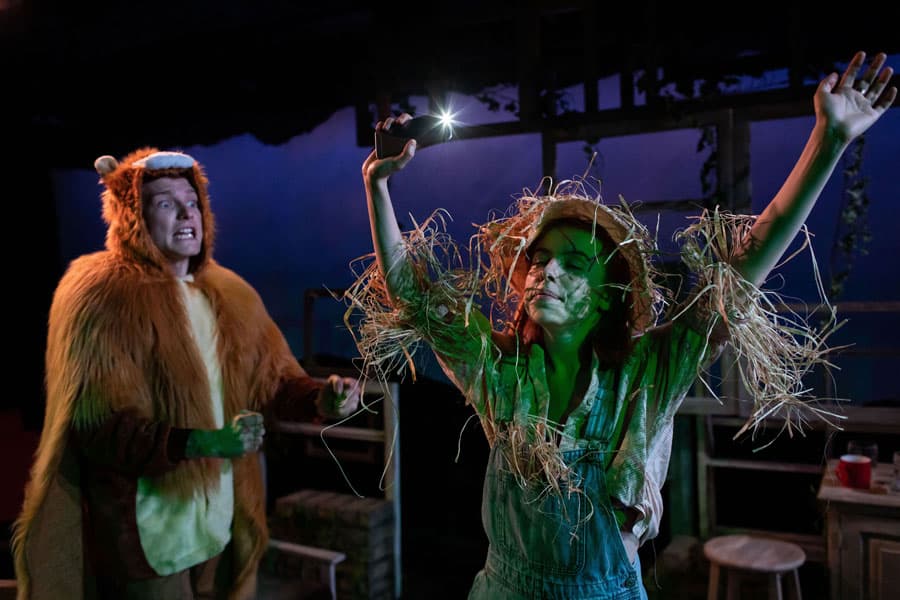Sophie Adnitt reviews The Girl Who Fell by Sarah Rutherford now playing at Trafalgar Studios 2.

The Girl Who Fell
Trafalgar Studios 2
3 Stars
Book Tickets
After a humiliating video of her goes viral online, 15 year old Sam takes her own life by jumping from a bridge. What follows, within the main action of The Girl Who Fell, is what happens between those left behind – Sam’s mum, her boyfriend, her best friend.
This is a strange play that’s never really fully any of the things that it tries to be – an exploration of grief, a critical look at a smartphone obsessed generation, a musing on connections and secrets. Sarah Rutherford’s script takes steps down all these roads, but all the themes feel somewhat incomplete. There’s some humour here too, although as someone who has grown up watching the internet and smartphones take over, I found the quips and jokes more tragic. Some of the points made feel more than a little over-egged, and the dialogue occasionally lapses into cheese. But this isn’t a bad play by any means, and it’s never dull.

The tiny performance space of Trafalgar Studio 2 pushes the audience uncomfortably close to the action, particularly during a drug taking scene which seems to go on for a lot longer than necessary. Other than this part however, the plot clips along at a good, swift pace, with short scenes keeping things moving. But it’s uncomfortable viewing, perhaps like how discussing death is an uncomfortable process in itself.
None of the characters come off particularly well as the motivations behind Sam’s suicide are slowly revealed. Sam’s mother Thea (Claire Goose in a challenging role), the creator of the shaming video is particularly unpleasant, with a victim complex that makes it very difficult to sympathise with her.

Rosie Day as Sam’s friend Billie is well pitched, perfectly capturing the mannerisms and cadence of a stroppy teenager and zipping around the stage on a single heely shoe in the restless, aimless way that teenagers tend to wander, in fear that keeping still will leave them open to scrutiny. Billie’s rather a pretentious girl and it does push the boundaries of disbelief slightly to accept that this teenager can reel off long meaningful quotes by heart, but none of this is Day’s fault and it’s an absorbing performance. The sibling relationship between her and Will Fletcher as her twin, the slightly dim but good natured Lenny, is well portrayed and one of the more believable sibling relationships in theatre.
Rounding off the cast of four is Navin Chowdhry as a stranger to the group who copes admirably with some of the more melodramatic contrivances he’s given by the script.

Georgia De Grey’s simple set suggests a sense of a life slowly decaying, even if the gradual disassembling of the back wall doesn’t make much sense, but sound is used subtly and effectively in Adrienne Quartly’s clever design.
The highlight of The Girl Who Fell is its final scene, rewarding in the way that it feels like a calming respite from all the turbulent action that’s come before. It feels more real, less forced and allows the chemistry between the cast to shine through a little more. A fresh and undeniably powerful take on the tired insistence that smartphones are ruining society (I’d argue that people have always managed to be horrible to each other, they never needed the internet in their hand to achieve that), The Girl Who Fell is a solid production of a frighteningly modern story.
Until 9 November 2019.
